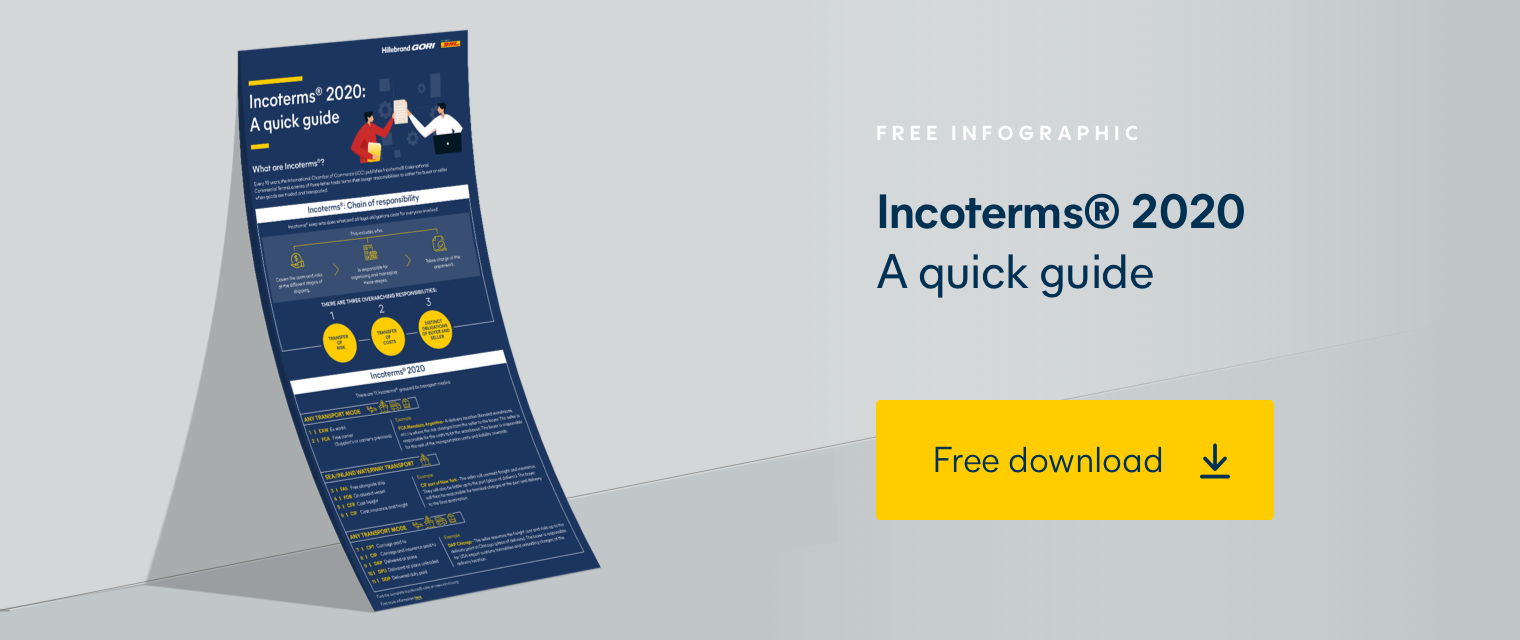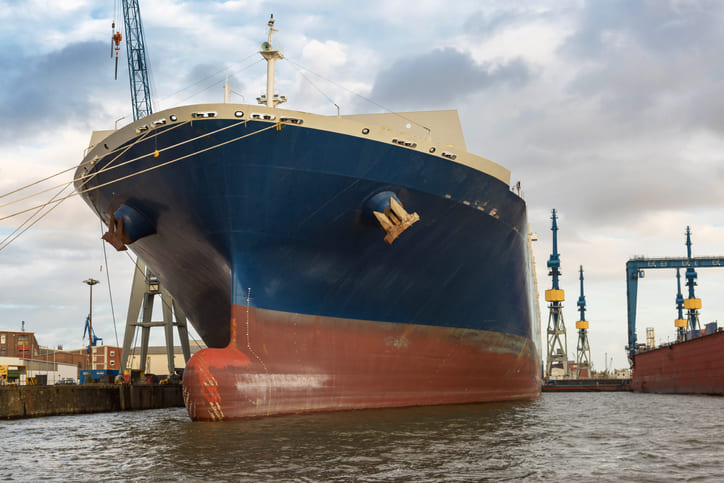FOB incoterms®: what everybody should know about them
Shipping goods internationally involves many different stages, each with its own costs and risks. Incoterms® (otherwise known as “international commercial terms”) clarify with whom the responsibility for the shipment sits with for each step of the process, so that the legal obligations are understood and agreed from the outset. The FOB (free on board) incoterm® is one of the most common terms of sale used and is described in more detail here.
Incoterms® explained
The International Chamber of Commerce (ICC) defines the incoterms® regarding the responsibility and liability involved with domestic and international shipping. These rules cover three specific areas:
Transfer of risk
Transfer of cost
Obligations of the seller and the buyer
Incoterms® are also always associated with a named place. This will be either the “place of delivery” or “place of destination”, depending on which particular set of rules is used. Where a “place of delivery” is used, the risk transfers from the buyer to the seller at that point. However, the “place of destination” is the ultimate destination of the transported goods.
The main advantage of implementing incoterms® right from the beginning of any transport activity is that it clarifies the roles and responsibilities at each stage of the process. This means that accurate quotes are created and any potential misunderstandings are avoided. Ultimately, this helps the freight movement to proceed smoothly and efficiently, which benefits both the buyer and the seller.
The ICC releases new rules every 10 years, with the most recent changes occurring in January 2020. A description of the updated rules is available in our guide to incoterms® 2020.
What are FOB incoterms®?
These are one of the most common types of rules in place for transport by sea/water. As the FOB (free on board) name suggests, here the risk is passed onto the buyer at the point when the goods have been loaded onboard a vessel.
More specifically, when using FOB terms, the responsibility for costs is borne by the seller in the following areas:
Loading the goods at the supplier’s premises
Transport to the first carrier
Export customs formalities
Origin terminal charges
Loading onto the vessel
Conversely, the buyer is responsible for the costs associated with:
Main transport
Destination terminal charges
Import customs formalities
Delivery to the destination
Unloading charges
An important point to note is that no insurance is included in FOB incoterms®. Therefore, this needs to be purchased through the freight forwarder or a third-party provider.
Other types of incoterms®
There are many different types of incoterms®, with each one being designed to suit a specific circumstance. Some rules are applicable to all modes of transport, but others are only relevant for transport by sea/water. Examples of incoterms® include:
EXW (Ex works): the buyer takes on the risk at all stages of transport.
FAS (free alongside ship): the risk is transferred alongside the ship, meaning that the buyer is liable for loading onto the vessel and all subsequent costs.
CFR (cost freight): the risk is transferred onboard the vessel, with the seller taking on the responsibility for the cost of main transport.
DAP (delivered at place): the seller takes on additional costs, including delivery to the destination.
This is just a small selection of the incoterms® that are available. For a more detailed description, please see our summary of incoterms®.
Incoterms® are designed to help
Incoterms® play a vital role in ensuring the smooth shipment of freight worldwide. There is a wide range of different rules available to suit all requirements, such as FOB incoterms® when moving freight by sea/water. These rules clarify the responsibility and liability of the buyer and the seller at each stage of transport, helping to avoid confusion and disagreements.
To find out how we can help with FOB incoterms® (and others) for your shipments, please contact our team.





